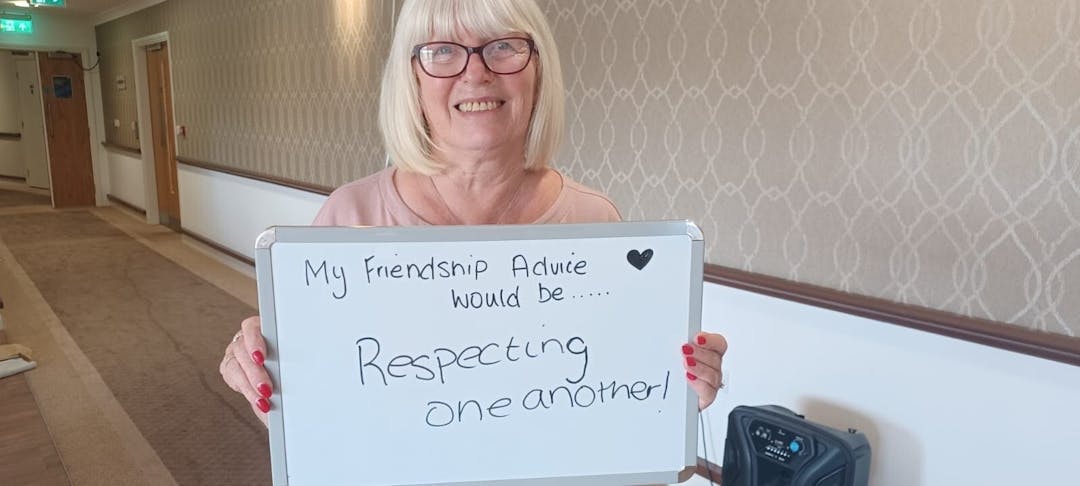Emotional Support For Carers Who Are Juggling Work and Caregiving

Estimated Reading Time: 7 minutes
An ageing population means more people are living longer, and many people across the UK are finding themselves caring for older, disabled or seriously ill relatives.
Whilst caring for a loved one can be rewarding, it can also be a challenge - especially when it comes to juggling caregiving responsibilities and other everyday commitments.
In this article, we’ve explored the best ways that unpaid carers can look after their own wellbeing, along with explaining carer support grants and the emotional support that’s available for carers across the UK.
Arrange care at home
Browse the best home care in your area.
Our new research has found a surge in carers struggling to cope with the emotional strain of being a carer - with more carers than ever before seeking advice:
| Search Term | How Much More Are People Searching For It? |
|---|---|
| ’Giving up work to care for someone’ | + 250% |
| ’Carers guilt’ | + 100% |
| ’Carers stress’ | + 27% |
| ’Carers burnout’ | + 25% |
Source: Internal analysis from Google's Keyword Planner over the last 12 months (October 2021-September 2022)
Caring For a Loved One and Carer’s Guilt
Carer’s guilt is a cycle of mixed emotions - varying from resentment to guilt. This is something which is experienced by many carers. This can be resentment that their life isn’t how it used to be, before guilt arises from feeling this way in the first place. Often, these feelings can be overwhelming for carers.
If you’re experiencing these emotions or something similar then be sure to talk to someone - this could be a friend or family member. In this kind of situation, sharing how you’re feeling is better than keeping your emotions bottled up.
1 in 8 adults are a carer for a family member or loved one, with many juggling employment, the cost of living crisis and any other commitments such as paid work. When trying to continuously spin multiple, time-consuming and often draining plates, carers are at risk of burnout - a mental and emotional condition - every day.
Remember, it’s okay to want to take a break from your caregiving responsibilities to reset and relax. It’s important to find time for yourself.
What is Carer Burnout?
Carer burnout is a state of physical, emotional and mental exhaustion. Stressed carers may experience fatigue and anxiety. Some of the most common ways to prevent carer burnout include joining a carers support group and using respite care services.
The pressure of caring for an elderly loved one can build up and sometimes feel overwhelming – especially if you’re juggling work and care commitments. This can lead to mental health concerns such as stress and anxiety.
This is why it’s important to take care of your health and wellbeing.
From taking time out of your day to unwind and putting time aside to do the things you love, finding financial, practical and emotional support will make a huge difference to your ability to cope as a carer.
This is why it makes sense for unpaid or informal carers to become familiar with the support systems available to carers, including having someone temporarily take over so you can enjoy a well-earned break from caring.
Ways To Look After Your Wellbeing When Caring For a Loved One
Here are some of the best ways to look after your wellbeing when balancing caring for a loved one with work and any other commitments you may have.
Open up about how you’re feeling
It’s important to talk about how you’re feeling with someone you trust, especially if you’re struggling. Sharing your feelings with family members or friends can help you feel supported.
Together, you can discuss different options of support that may help manage your caring responsibilities.
Practice stress management techniques
Caregiving can be a rewarding but challenging role. If you start to feel overwhelmed by the pressures of caregiving responsibilities, it’s important to find stress management techniques that work for you.
One of the fastest ways to calm down when feeling stressed is through practising mindfulness. Try to take slow deep breaths and focus on the present. Focusing on your breathing helps your body destress and alleviate anxiety. Regular exercise and talking to someone you trust are also practical stress management techniques.
Find a support network
Caring for a loved one can be a rewarding but challenging job, so it’s important to be able to lean on a support network when needed.
Joining a local support group for carers can help you to feel connected to others in similar situations. These support groups can also provide access to additional information and support services to help you manage your caregiving responsibilities.
There are lots of support groups for carers available across the UK. You can find some of these by searching online through Carers UK and Age UK. These sites can direct you to local groups in your area.
You can find free support for wellbeing and mental health through MentalHealth.org, Mind, and Kooth.
A number of local councils offer mental health and wellbeing services, including the Barnet and Camden councils in London.

Ask for support from a loved one
Taking on too much responsibility may result in you feeling stressed or overwhelmed. Try to be realistic about what you can and can’t do by yourself. You could try writing a list of all the support your loved one requires and break this down by what you can do alone and what you may need support with.
Be sure to discuss this with other family members and friends.
Remember that it’s okay to ask for support if you’re struggling.
Access financial support
Caring for someone you love can lead to monetary worries, especially if you’ve had to give up your career or reduce your working hours. However, you may be able to claim financial support from your local council.
Following a carer's assessment with your local council, you may be eligible for a carer’s personal budget - Carer’s Allowance. You may also be entitled to financial support for additional care services to meet your loved one’s needs.
Create an emergency plan
If your loved one becomes unwell, creating an emergency plan can help to put any anxiety or worries at ease. This plan will be of great help if needed at a critical time, or if you’re unable to care for your loved one for whatever reason.
This plan should include important information such as:
- The personal details of your loved one
- Who should be contacted in case of an emergency
- Details of any medication
- GP contact information
- Details of ongoing treatments
- Additional support your loved one requires
It’s a good idea to share a copy of this emergency care plan with family members and medical professionals. This plan should be regularly reviewed and updated.
Make your employer aware of your caregiving responsibilities
Juggling work and caregiving responsibilities can be a lot to handle all at one time. If you’re struggling to balance your commitments, talk to your employer. They may be able to offer practical support.
For example, you may be eligible for flexible working hours which can help reduce the stress of juggling caregiving responsibilities and managing your workload. Flexible working can range from changing your working hours, working compressed hours, job sharing or even working remotely. so it’s important to discuss with your employer how flexible working options may work for you both.
Some employers may also provide eldercare benefits and support as part of their employee wellbeing packages, so be sure to become aware of all the caregiver support available through your employer.

Research your care options
Respite care services are designed to help carers take a break from their caregiving duties, whilst knowing their loved one is still able to access support and care from a trained professional.
There are lots of options for respite breaks, from a short stay at a care home to in-home respite care. If you need a carer’s break, talk to the person you’re caring for about the options available. Together, you can explore respite care options that work best for both of you.



